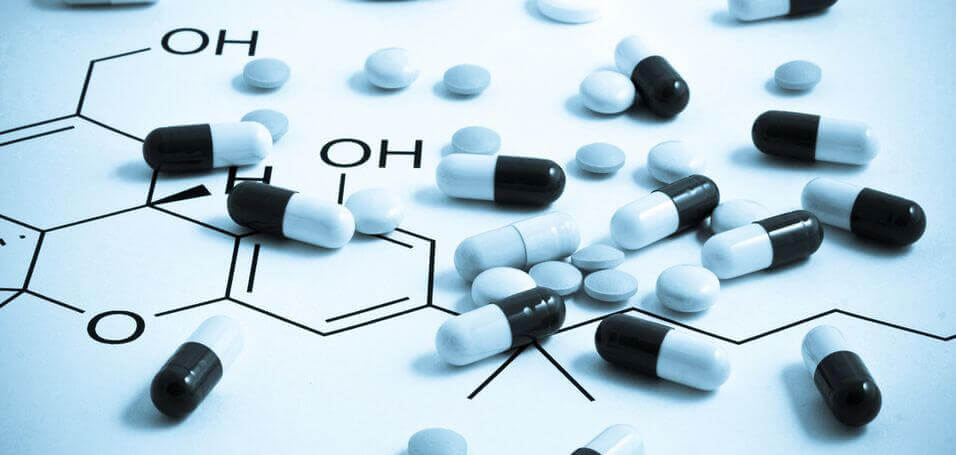Betaine has been getting a lot of attention these days.
Heart doctors have known about it for quite some time, but it’s a relative newcomer to the workout supplement space.
You’ll find it in quite a few pre-workout and “muscle building” supplements, but what is it and how does it work?
Moreover, how much can it really improve our health, exercise performance, and body composition?
Well, you’re going to get simple, science-based answers to those questions and more in this article.
By the end, you’re going to know what betaine is, why people supplement with it, how it can benefit you, how much you have to take, what the side effects are, and my favorite betaine supplement.
Let’s get started.
(Or if you’d prefer to skip all of the scientific mumbo jumbo, and you just want to know if you should take betaine or a different supplement to reach your goals, no problem! Just take the Legion Supplement Finder Quiz, and in less than a minute, you’ll know exactly what supplements are right for you. Click here to check it out.)
- What Is Betaine?
- Why Do People Supplement with Betaine?
- What Are the Benefits of Betaine?
- What Is the Clinically Effective Dose of Betaine?
- What Type of Results Should I Expect From Taking Betaine?
- Does Betaine Have Any Side Effects?
- The Best Betaine Supplements
- The Bottom Line on Betaine
Table of Contents
+What Is Betaine?

Betaine, also known as trimethylglycine, is an amino acid found in various foods like beets (hence the name), spinach, and quinoa.
Betaine performs two major functions in the body.
- It acts as a methyl donor.
- It acts as an osmolyte.
“A what and what?” I can hear you thinking, so let me explain.
Betaine is rich in a special type of group of carbon and hydrogen molecules called methyl groups.
These groups can be passed around in the body through a process called methylation, and this is a vital part of many physiological processes ranging from genetic activity to the functions of proteins and more.
Betaine has a lot of methyl groups to pass around, so it’s known as a “methyl donor.”
Betaine is also an osmolyte, which is a substance that helps balance fluid levels inside and outside cells.
This is also vitally important because fluid imbalances can cause cells to die either by shrinking too much or swelling to the point of bursting.
(Creatine is another osmolyte that’s popular among us fitness folk.)
Why Do People Supplement with Betaine?
There are three main reasons people supplement with betaine:
- To improve heart health.
- To improve digestion.
- To increase exercise performance and gain muscle and strength faster.
As you’ll soon see, betaine’s cardiovascular and digestive benefits are well established and understood, but its effects on physical performance and muscle growth are less so.
What Are the Benefits of Betaine?

Unlike many of the supplements on the market, studies show that betaine can be a valuable addition to your regimen.
Research indicates that supplementing with betaine can…
- Reduce the risk of cardiovascular disease.
- Improve liver function and digestion
- Improve muscle performance and body composition.
Let’s take a closer look at how betaine does these things.
Betaine reduces the risk of heart disease.
Betaine decreases levels of the amino acid homocysteine circulating in the blood.
It accomplishes this by “donating” one of its methyl groups to homocysteine molecules, which converts them into the harmless substance methionine.
This can reduce the risk of heart disease and stroke because too much homocysteine in the blood causes plaque to form in the arteries, making them hard and clogged.
Betaine supports liver function and detoxification
Obesity, alcohol abuse, and diabetes cause fatty acids to build up in the liver.
Some fat in the liver is normal, but if there’s too much, it can harm your health in various ways. This is known as Fatty Liver Disease.
Well, research shows that betaine helps the liver break down fatty acids, which means it helps prevent fatty acid deposits from accumulating in the liver. It can even help people recover from liver damage.
Betaine can help aid in digestion
Your stomach must be sufficiently acidic for food to digest properly.
If acid levels are too low, your body won’t be able to completely break down the food you eat and absorb its nutrients. This makes it easier to develop nutritional deficiencies and increases the risk of various diseases and dysfunctions.
The acid that does most of the work here is hydrochloric acid (HCl). If you don’t have enough HCl in your stomach, your digestion is going to suffer.
That’s why the form of betaine that’s attached to hydrochloric acid (betaine HCl) is often used to help raise acid levels in the stomach and relieve many gastrointestinal issues.
Betaine can improve physical performance and body composition.
Research shows that betaine can increase muscle power and endurance and accelerate muscle growth and fat loss.
That’s why it’s finding its way into more and more workout supplements.
It’s worth noting, though, that the body composition benefits weren’t seen in this study.
We don’t quite know why, yet (scientists are still looking for answers), so all we can really say at this point is while betaine will likely improve your workout performance, it may or may not help you build muscle and lose fat faster.
What Is the Clinically Effective Dose of Betaine?

The clinically effective dose of a substance is the amount that produces the desired response or effect.
For betaine, the effective dose depends on why you’re taking it.
Here’s what we know so far:
- To reduce homocysteine levels and promote good liver function, the lowest effective dose is 500 mg daily.
- For those with liver damage or disease, 1000 to 2000mg taken three times daily is required.
- To improve digestion, betaine HCl can be taken in doses ranging from 650 to 2000 mg per day.
- To boost exercise performance and muscle gain and fast loss, 1000 to 6000 mg per day was used in the studies that reported positive results.
What Type of Results Should I Expect From Taking Betaine?
As with all natural supplements, don’t pin unrealistically high expectations on betaine.
Remember that supplements don’t build great physiques–dedication to proper training and nutrition does.
That said, here’s what you can expect from betaine supplementation:
- Slight increase in resistance training performance.
- Possible slight increase in muscle gain and fat loss.
- Lower homocysteine levels and thus lower risk of heart disease
- Better liver function
- Improved digestion
If that doesn’t sound all that sexy to you, I understand. I’m just calling it like it is.
That said, it doesn’t mean you shouldn’t supplement with betaine. It just means you shouldn’t supplement only with betaine if you really want to move the needle.
The same can be said about most natural supplements.
By themselves, individually, they are underwhelming. Take the right ones together, though, and the cumulative effects can become noticeable.
For example, while betaine may only improve your weightlifting performance by, let’s say, 3 to 5%, if you combine it with several other ingredients with similar effects, you’re now looking at a 15 to 20% boost in your workouts.
And that’s enough to matter if you also consistently train hard and eat right.
The same goes for fat loss supplements.
While supplements like caffeine, synephrine, and yohimbine are all proven “fat burners,” they’re most effective when combined.
Does Betaine Have Any Side Effects?

In healthy people, side effects are rare with betaine supplementation.
Some people can experience diarrhea or nausea, but this isn’t common.
When dosing gets up into the several grams per day, the breath and sweat can take on a fishy odor. If that happens to you, supplement with about 200 mg of riboflavin (B2) per day and it should go away.
I should also note that if you’re taking medications for liver or heart disease, or are at high risk of heart disease, it’s a good idea to consult a physician prior to starting betaine supplementation.
The Best Betaine Supplements
Betaine is often found in pre-workout supplements, and now you know why.
It helps you have better workouts…if you take enough.
If a pre-workout drink contains less than 1 gram of betaine per serving, don’t buy it. It’s underdosed.
You want to see at least 1 gram per serving, but if you look at the research, 2 to 3 grams is better for reliably increasing physical performance.
That also means you should stay away from supplements containing “proprietary blends,” because there’s no way for you to know the doses of each ingredient in the blends.
(That’s intentional, by the way—supplement companies don’t want you to see how much they’re scrimping in their formulations.)
Now, if you’ve made it this far, you’re probably not surprised to learn that my pre-workout supplement Pulse contains a clinically effective dose of 2.5 grams of betaine per serving. (This is the case for both regular and caffeine-free Pulse.)
It also contains clinically effective doses of 5 other performance-enhancing ingredients:
- Caffeine
Caffeine is good for more than the energy boost. It also increases muscle endurance and strength.
- Beta-alanine
Beta-alanine is a naturally occurring amino acid that reduces exercise-induced fatigue, improves anaerobic exercise capacity, and can accelerate muscle growth.
- Citrulline Malate
Citrulline is an amino acid that improves muscle endurance, relieves muscle soreness, and improves aerobic performance.
- Ornithine
Ornithine is an amino acid found in high amounts in dairy and meat that reduces fatigue in prolonged exercise and promotes lipid oxidation (the burning of fat for energy as opposed to carbohydrate or glycogen).
- Theanine
Theanine is an amino acid found primarily in tea that reduces the effects of mental and physical stress, increases the production of nitric oxide, which improves blood flow, and improves alertness, focus, attention, memory, mental task performance, and mood.
And what you won’t find in Pulse is equally special:
- No artificial sweeteners or flavors.
- No artificial food dyes.
- No unnecessary fillers, carbohydrate powders, or junk ingredients.
The bottom line is if you want to feel focused, tireless, and powerful in your workouts…and if you want to say goodbye to the pre-workout jitters, upset stomachs, and crashes for good…then you want to try Pulse.
Oh, and if you aren’t sure if Pulse is right for you or if another supplement might be a better fit for your budget, circumstances, and goals, then take the Legion Supplement Finder Quiz! In less than a minute, it’ll tell you exactly what supplements are right for you. Click here to check it out.
The Bottom Line on Betaine
Betaine is one of the few supplements that are affordable and proven to boost physical performance.
If your budget permits, it’s a worthwhile addition to your supplementation regimen.
Don’t buy into the hype, though–betaine isn’t going to “take your workouts to another level” or “pack on slabs of lean muscle.”
It can help you push a bit harder in your training, however, and may help you add muscle faster as well.
And that, in time, can result in greater progress toward your goals.
If you’re going to supplement with betaine, I recommend you combine it with other proven performance enhancers like creatine, citrulline, and beta-alanine.
While you may not notice much of a difference in your workouts when taken individually, the cumulative effects of these supplements can be substantial.
What’s your take on betaine? Have anything else to share? Let me know in the comments below!
Scientific References +
- CF, H., DO, K., AL, M., KA, W., & AB, S. (2008). The effects of L-theanine, caffeine and their combination on cognition and mood. Biological Psychology, 77(2), 113–122. https://doi.org/10.1016/J.BIOPSYCHO.2007.09.008
- Anna C Nobre, Anling Rao, & Gail N Owen. (n.d.). L-theanine, a natural constituent in tea, and its effect on mental state - PubMed. Retrieved August 10, 2021, from https://pubmed.ncbi.nlm.nih.gov/18296328/
- JJ, F., KP, M., PJ, L., MJ, R., EA, de B., & SP, K. (2012). Assessing the effects of caffeine and theanine on the maintenance of vigilance during a sustained attention task. Neuropharmacology, 62(7), 2320–2327. https://doi.org/10.1016/J.NEUROPHARM.2012.01.020
- J, B. (2008). Psychological effects of dietary components of tea: caffeine and L-theanine. Nutrition Reviews, 66(2), 82–90. https://doi.org/10.1111/J.1753-4887.2007.00011.X
- JH, S., PM, D., S, M., MK, J., VP, S., G, B., & S, C. (2013). L-theanine promotes nitric oxide production in endothelial cells through eNOS phosphorylation. The Journal of Nutritional Biochemistry, 24(3), 595–605. https://doi.org/10.1016/J.JNUTBIO.2012.02.016
- K, K., M, O., LR, J., & H, O. (2007). L-Theanine reduces psychological and physiological stress responses. Biological Psychology, 74(1), 39–45. https://doi.org/10.1016/J.BIOPSYCHO.2006.06.006
- T, S., T, S., Y, K., & O, K. (2008). L-ornithine supplementation attenuates physical fatigue in healthy volunteers by modulating lipid and amino acid metabolism. Nutrition Research (New York, N.Y.), 28(11), 738–743. https://doi.org/10.1016/J.NUTRES.2008.08.008
- D, B., JP, M., B, G., S, C.-G., ME, L. G., & PJ, C. (2002). Citrulline/malate promotes aerobic energy production in human exercising muscle. British Journal of Sports Medicine, 36(4), 282–289. https://doi.org/10.1136/BJSM.36.4.282
- J, P.-G., & PM, J. (2010). Citrulline malate enhances athletic anaerobic performance and relieves muscle soreness. Journal of Strength and Conditioning Research, 24(5), 1215–1222. https://doi.org/10.1519/JSC.0B013E3181CB28E0
- BD, K., & TL, R. (2011). Effects of β-alanine supplementation on performance and body composition in collegiate wrestlers and football players. Journal of Strength and Conditioning Research, 25(7), 1804–1815. https://doi.org/10.1519/JSC.0B013E3181E741CF
- AE, S., AA, W., JL, G., KL, K., JR, M., CM, L., DH, F., TW, B., JT, C., & JR, S. (2009). Effects of beta-alanine supplementation and high-intensity interval training on endurance performance and body composition in men; a double-blind trial. Journal of the International Society of Sports Nutrition, 6. https://doi.org/10.1186/1550-2783-6-5
- W, D., MS, O., RC, H., A, P., H, R., K, K., JA, W., & E, A. (2007). beta-Alanine supplementation augments muscle carnosine content and attenuates fatigue during repeated isokinetic contraction bouts in trained sprinters. Journal of Applied Physiology (Bethesda, Md. : 1985), 103(5), 1736–1743. https://doi.org/10.1152/JAPPLPHYSIOL.00397.2007
- TA, A., RL, R., & K, F. (2008). Effect of caffeine ingestion on one-repetition maximum muscular strength. European Journal of Applied Physiology, 102(2), 127–132. https://doi.org/10.1007/S00421-007-0557-X
- TW, B., TJ, H., RJ, S., GO, J., DJ, H., JW, C., & MH, M. (2006). The acute effects of a caffeine-containing supplement on strength, muscular endurance, and anaerobic capabilities. Journal of Strength and Conditioning Research, 20(3), 506–510. https://doi.org/10.1519/18285.1
- U, S., A, T., L, T., G, A., M, S., A, A., & M, U. (2002). Betaine supplementation decreases plasma homocysteine concentrations but does not affect body weight, body composition, or resting energy expenditure in human subjects. The American Journal of Clinical Nutrition, 76(5), 961–967. https://doi.org/10.1093/AJCN/76.5.961
- Cholewa, J. M., Wyszczelska-Rokiel, M., Glowacki, R., Jakubowski, H., Matthews, T., Wood, R., Craig, S. A., & Paolone, V. (2013). Effects of betaine on body composition, performance, and homocysteine thiolactone. Journal of the International Society of Sports Nutrition 2013 10:1, 10(1), 1–12. https://doi.org/10.1186/1550-2783-10-39
- JR, H., NA, R., J, K., SL, R., & AD, F. (2009). Effect of betaine supplementation on power performance and fatigue. Journal of the International Society of Sports Nutrition, 6. https://doi.org/10.1186/1550-2783-6-7
- EC, L., CM, M., WJ, K., LM, Y., DL, H., BL, B., LE, A., JS, V., BP, M., & SA, C. (2010). Ergogenic effects of betaine supplementation on strength and power performance. Journal of the International Society of Sports Nutrition, 7. https://doi.org/10.1186/1550-2783-7-27
- Yago, M. A. R., Frymoyer, A. R., Smelick, G. S., Frassetto, L. A., Budha, N. R., Dresser, M. J., Ware, J. A., & Benet, L. Z. (2013). Gastric Re-acidification with Betaine HCl in Healthy Volunteers with Rabeprazole-Induced Hypochlorhydria. Molecular Pharmaceutics, 10(11), 4032. https://doi.org/10.1021/MP4003738
- Kathirvel, E., Morgan, K., Nandgiri, G., Sandoval, B. C., Caudill, M. A., Bottiglieri, T., French, S. W., & Morgan, T. R. (2010). Betaine improves nonalcoholic fatty liver and associated hepatic insulin resistance: a potential mechanism for hepatoprotection by betaine. American Journal of Physiology - Gastrointestinal and Liver Physiology, 299(5), G1068. https://doi.org/10.1152/AJPGI.00249.2010
- MF, A., P, A., RA, J., PB, S., & KD, L. (2001). Betaine, a promising new agent for patients with nonalcoholic steatohepatitis: results of a pilot study. The American Journal of Gastroenterology, 96(9), 2711–2717. https://doi.org/10.1111/J.1572-0241.2001.04129.X
- Ganguly, P., & Alam, S. F. (2015). Role of homocysteine in the development of cardiovascular disease. Nutrition Journal, 14(1). https://doi.org/10.1186/1475-2891-14-6
- Olthof, M. R., van Vliet, T., Boelsma, E., & Verhoef, P. (2003). Low Dose Betaine Supplementation Leads to Immediate and Long Term Lowering of Plasma Homocysteine in Healthy Men and Women. The Journal of Nutrition, 133(12), 4135–4138. https://doi.org/10.1093/JN/133.12.4135










